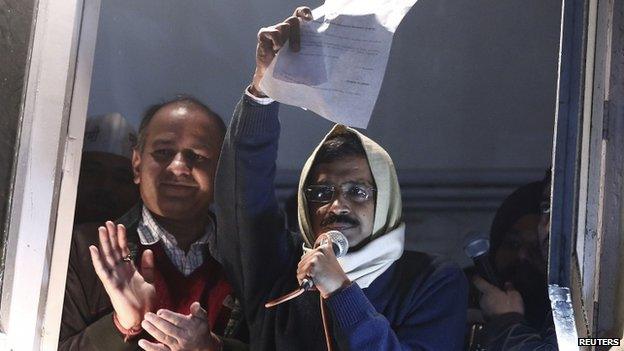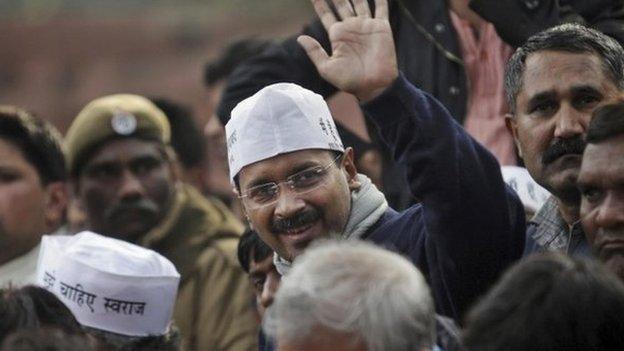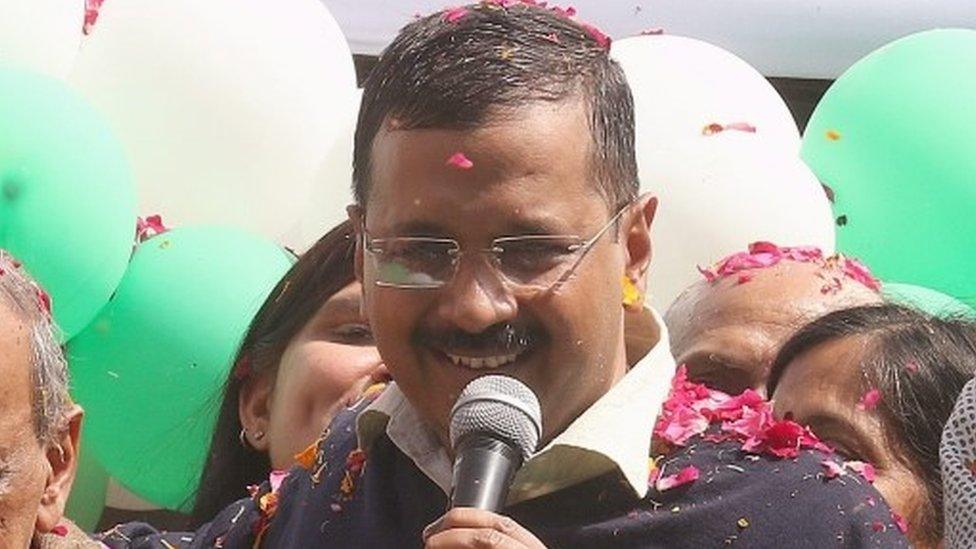Delhi anti-corruption chief minister Arvind Kejriwal quits
- Published

Arvind Kejriwal showed his resignation letter to supporters outside his party headquarters in Delhi
Delhi Chief Minister Arvind Kejriwal has resigned after an anti-corruption bill was blocked in the state assembly.
Opposition politicians blocked the bill, which would have created an independent body with the power to investigate politicians and civil servants suspected of corruption.
They argued it was unconstitutional to introduce legislation that did not have the approval of the federal government.
His anti-corruption party made a spectacular debut in recent elections.
But correspondents say his refusal to seek prior approval for the bill is part of a power struggle unfolding between his local administration and the federal government.
'Unusual style'
Mr Kejriwal, who spent 49 days in power, had been threatening to resign if the anti-corruption bill was blocked.
He had also written to India's Home Minister Sushil Kumar Shinde asking him to withdraw a 2002 order making federal consent compulsory for laws introduced into Delhi's assembly.
Addressing hundreds of supporters outside his party headquarters on Friday, Mr Kejriwal said his attempt to fight corruption by bringing in new legislation had been blocked by India's two leading parties, the Congress and the Bharatiya Janata Party (BJP).
"My cabinet has decided that we are quitting. Here is my resignation letter," he said.
The bill was blocked by opposition Congress and BJP MPs in a chaotic session at the Delhi Assembly earlier on Friday.
Later, as politicians tried to shout him down in the parliament, he said: "We need to look within us. People don't like politicians. I have read the constitution; nowhere does it say we need the centre's permission to table bills.
"I will consider myself fortunate if I have to sacrifice the chief minister's post and my life to eradicate corruption."
Mr Kejriwal, who has described himself as an anarchist, brought an unusual style to government, says the BBC's Sanjoy Majumder in Delhi.
The highlight of this was when he spent two nights in the open to press the federal government to grant him greater control over the city police.
He is now expected to launch his party's campaign for the national elections due in the summer, our correspondent adds.
- Published10 February 2014

- Published21 January 2014

- Published10 February 2015

- Published21 January 2014